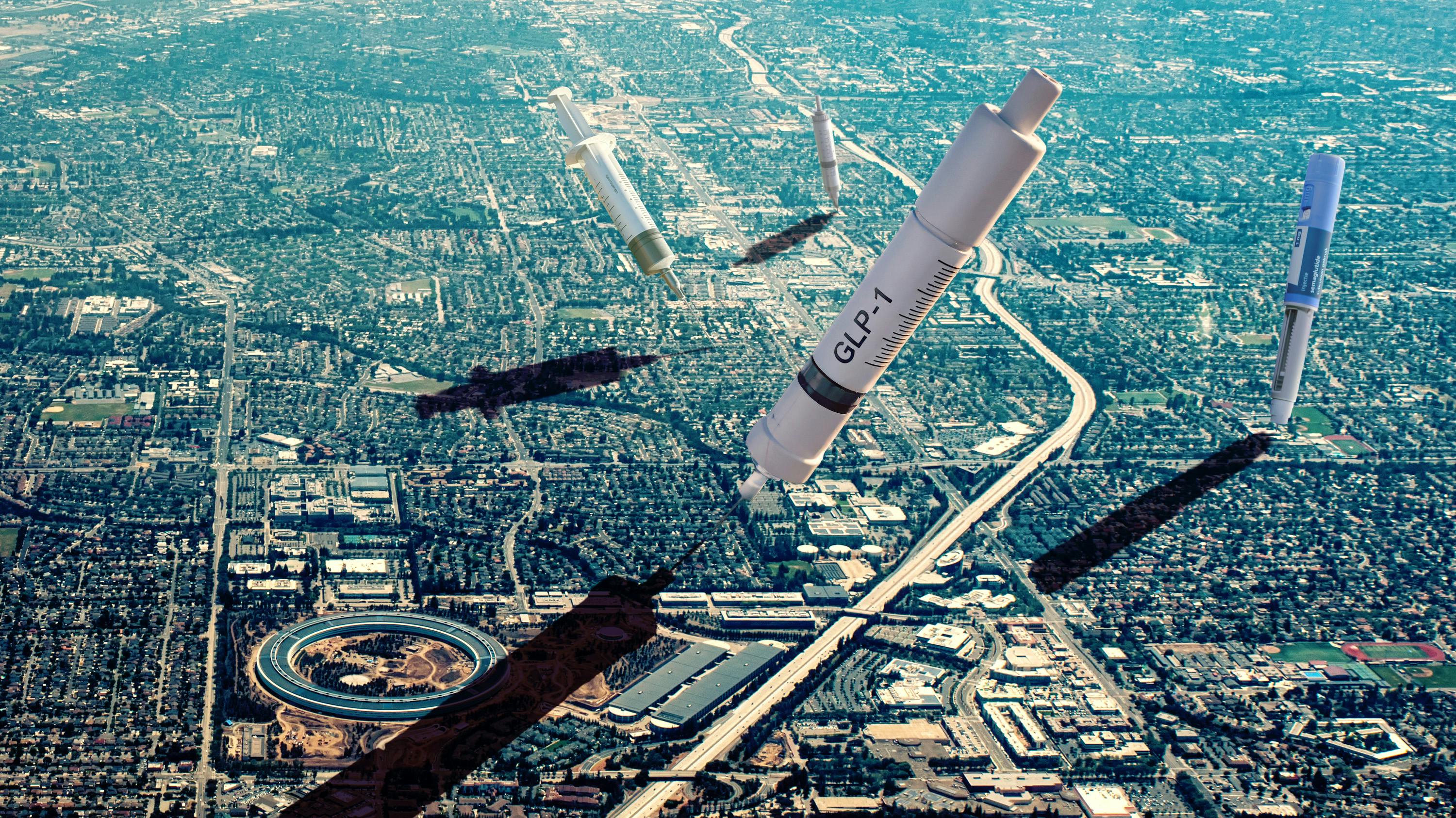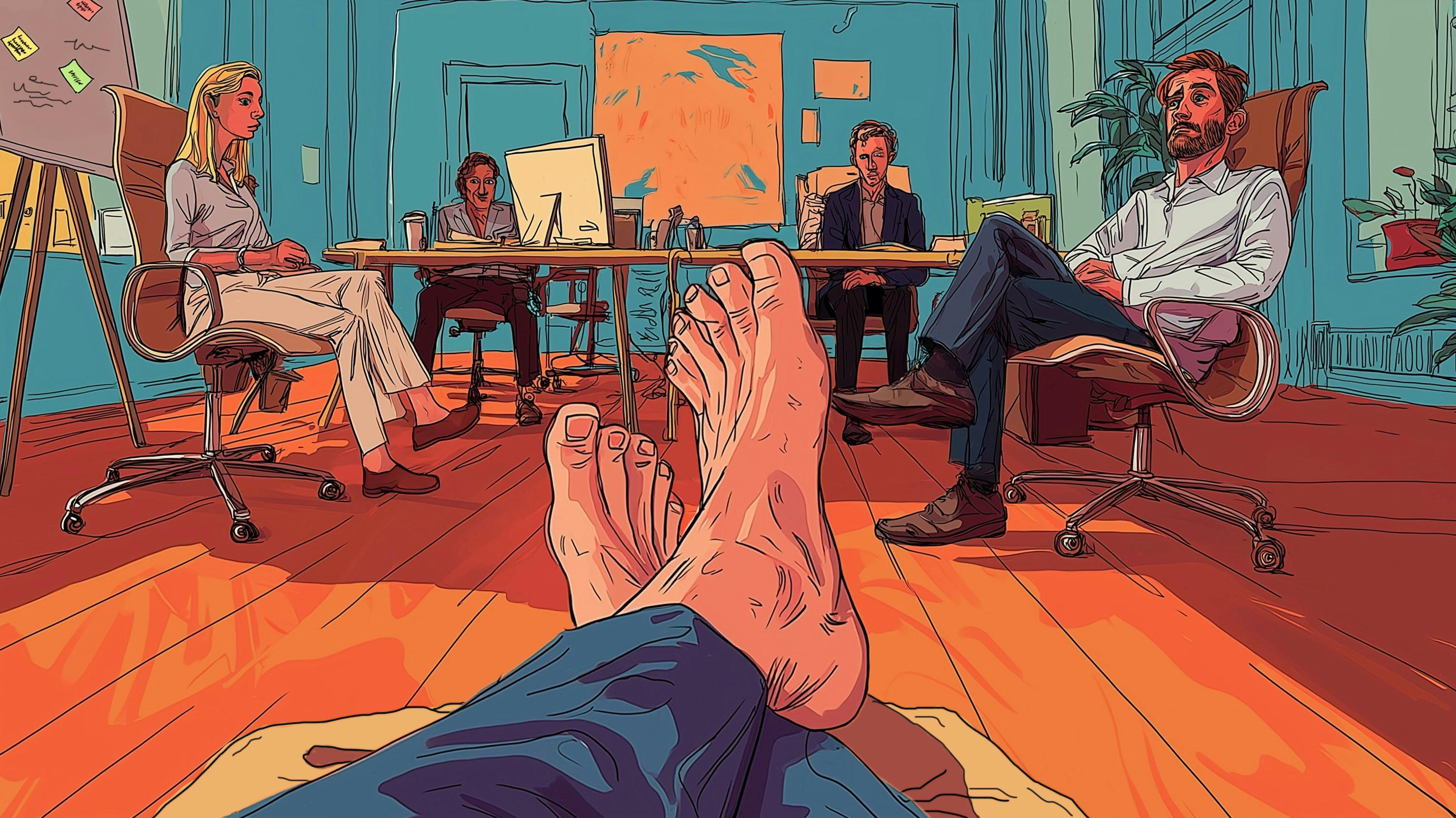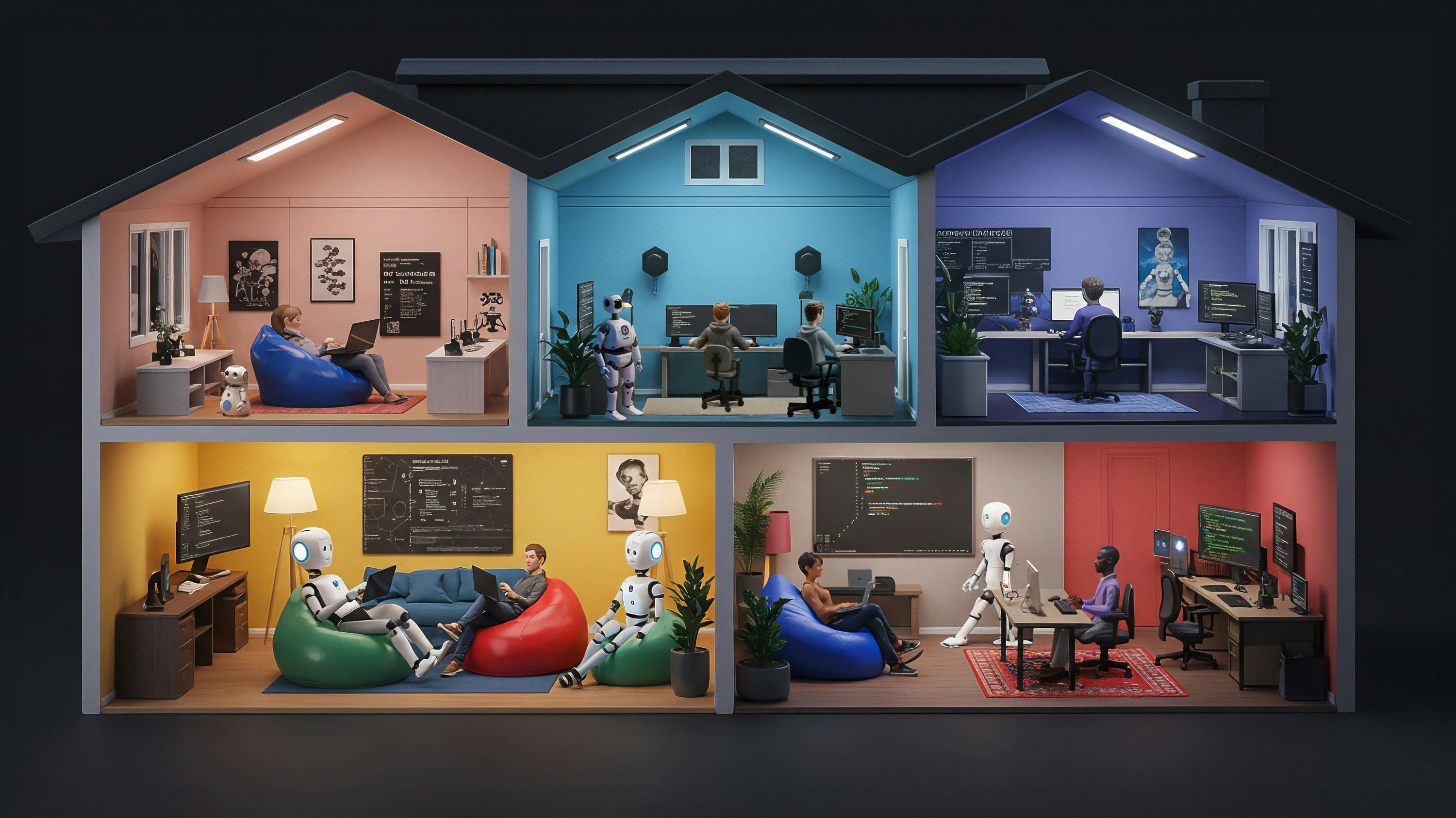| Welcome, Weekenders! In this newsletter: |
| • The Big Read: The tech elite sees GLP-1s as all-purpose wonder drugs |
| • The Arena: Inside the NFL’s feud with venerable ol’ Nielsen |
| • The Top 5: The AI era’s favorite hacker houses |
| • Does a shoeless office stink? Depends on who you ask in Silicon Valley |
| • Plus, our Recommendations: “Bad Elizabeth,” “Dirtbag Billionaire” and “Folktales” |
| |
| Back at the end of the financial crisis, I earned my living nosing around other people’s money—counting it up as best I could for Forbes magazine as part of the team of reporters that compiles the publication’s lists of the world’s wealthiest people. |
| The world had far fewer billionaires then, just about 1,000. Forbes puts the number now at 3,028, with 902 of them living in America. A fresh tally released this week by The Wall Street Journal put the latter number a touch higher at 1,135 U.S. billionaires. |
| And sometimes we’d chuckle when considering what we would do with the list of billionaires when trillionaires started to pile up. The global economy had just teetered over the edge, erasing a good deal of the world’s collective trust in capitalism. A trillionaire seemed as plausible as the notion of stepping into a self-driving taxi anytime soon. |
| Clearly, we were misjudging the general gullibility of folks. The Tesla board revealed on Friday that it plans to ask its shareholders to reward Elon Musk with another stunner of a compensation package, one that could turn him into the planet’s first trillionaire. (By the way, do recall the very good show on FX about trillionaires that I recommended just last week.) |
| Tesla’s investors generally behave like a doe-eyed lot, so I imagine they’ll approve the pay deal even after the company stock has had a real zigzag of a year. To give them a little credit, I don’t envy their other option, which is basically playing a game of chicken with Musk. |
| The reality is, Musk has many other interests: SpaceX, xAI and so forth. The enormous compensation at Tesla is meant to keep his attention focused there. If shareholders don’t go along with the plan, it’s a question of who will blink first: Will it be Musk, who will stop focusing on Tesla because he didn’t get his trillions? Or will it be Tesla shareholders, who give in and further enrich him? (On a related front, after following the tortured history of Musk’s Tesla pay package, it’s worth reading Theo Wayt’s account of Musk’s tortured history with X Pay). |
| Perhaps Musk’s fortune will never get to 13 digits. (My colleague Martin Peers thinks it’s actually a long shot for him to fully earn that compensation package.) But even if it only ever extends to the hundreds of billions of dollars, it’s still astounding in vastness—almost twice the size of anyone else’s fortune. And as you can tell from both Forbes’ list and the one published just now by the Journal, those aren’t fortunes that get spent—or given away—in a generation or two. They linger and get passed on down. Musk isn’t a particularly philanthropic sort, but he does have lots of children—so I can picture a time coming up when a list of the planet’s richest people includes a lot of Musks. |
| They Got a Google Feeling |
| Ask anyone in power in Silicon Valley, and everyone seems rather elated by this week’s ruling in the federal government’s antitrust case against Google’s search business: It could indicate that the other similar actions pending against Meta Platforms, Amazon and Apple may pretty much wither on the vine. But the former Justice Department officials and antitrust experts I talked to this week couldn’t stop throwing cold water on the technorati’s optimism. |
| “I wouldn’t read the ruling as a general free pass,” said William Kovacic, a former Federal Trade Commission chair. As Kovacic points out, sometimes even lenient-seeming remedies handed out in antitrust cases prove more consequential than they originally appear. And he suspects sentiment on antitrust might shift from the eventual outcome of a separate antitrust case against Google over ad tech; later this month, Judge Leonie Brinkema will oversee a trial to determine what remedies she will dispense to Google after previously ruling it does hold a monopoly in ad tech. “My intuition is that she will take a more stern approach.” |
| The Trumps’ Mixed Messages |
| As seems to happen quite often these days, artificial intelligence was a constant topic of discussion at the White House this week. |
| On Monday, President Donald Trump said a viral photo of someone throwing a garbage bag out of an upper-floor window in the White House was an AI fake. He said such phony images were a drawback of AI—then he quickly added, “If something happens that’s really bad, maybe I’ll have to just blame AI.” |
| Then on Thursday, First Lady Melania Trump took the opportunity to sound a warning bell about AI as the White House hosted a summit of tech leaders. “The robots are here. Our future is no longer science fiction,” she said. “We must manage AI’s growth responsibly.” |
| So to recap, that’s one Trump warning about misusing AI...and one Trump warning that he could misuse AI.—Abram Brown |
| |
|
|
 |
|
| Brian Sugar thinks he has developed a superpower. |
| No, I’m not being a wiseass. That’s the word he used to describe his newfound ability to bolster his physical and mental health after a year or so of taking semaglutide, one of the new GLP-1 weightloss drugs. “If you then steer that willpower to something that you want to be more disciplined about, it’s radically easier,” he told our Ann Gehan. |
| In Weekend’s latest Big Read, Ann spotlights how the tech elite has eagerly embraced GLP-1s for more than just dropping some LBs. A sizable portion of the technorati sees it as the next natural thing to try in the endless quest to optimize themselves and chase longevity cures, adding the drugs to a regimen that has long included other perceived energy boosters, like peptides. |
|
 |
|
| The NFL and Nielsen, the longtime assessor of television ratings, have a long, complex and intertwined relationship. That partnership lately has grown uneasy as the league has accused Nielsen of miscounting its audience at a time when the internet should make counting eyeballs easier than ever, our Sara Germano reports in The Arena, Weekend’s new franchise about the business of sports. |
|
 |
|
| Startups have long embraced an atmosphere of casualness. No one needed to wear wingtips—flip-flops were fine. Now some companies are taking the approach even further and adopting a shoes-off policy, according to Weekend newcomer Max Berlinger, who has also contributed to The New York Times, GQ and Town & Country. Founders hope the approach makes employees feel more comfortable and relaxed. But not everyone wants to let their dogs hang out. |
|
 |
|
| In the decades since hacker houses first established themselves around the Bay Area, much has drastically changed about startup life. None of those shifts has dimmed the interest in joining one of these houses, though, and as our Jemima McEvoy reports, a whole new generation has risen to prominence during the latest tech era. |
| Abram Brown is the editor of The Information's Weekend section. You can reach him at abe@theinformation.com or find him on X. |
| |
 |
| Listening: “Bad Elizabeth” |
| Look, some names do just sound nefarious—introduce me to a Mordecai, and I’m instantly breaking out in a cold sweat. Now “Bad Elizabeth” has me wondering about Elizabeths, too. The podcast, which comes from a pair of “The Daily Show” veterans, examines a slew of naughty Bettys, including ax murder Lizzie Borden, TV screenwriter and self-fabulist Elisabeth Finch, and, of course, Theranos CEO Elizabeth Holmes.—Abram Brown |
| Reading: “Dirtbag Billionaire” by David Gelles |
| David Gelles, a longtime New York Times reporter, is quite up front about what his latest book isn’t. “Many books offer pat lessons and actionable strategies for getting ahead in business,” he writes. “This narrative doesn’t lend itself to that sort of tidy analysis.” No, it doesn’t, because its subject, Patagonia founder Yvon Chouinard, has always forcibly resisted the conventional definition of moguliness. Most notably, of course, he has vowed to give away most of the fortune he accumulated by blazing an extraordinarily unusual path across the apparel business. (Gelles draws the book’s title from an epithet: “dirtbag climber,” a term of endearment bestowed on outdoorsmen with no worldly desires other than to be outdoors, a pursuit Chouinard, now 86, rigorously pursued as a younger man.) |
| As Gelles notes, Chouinard’s journey is replete with contradictions. He likes to hold out Patagonia as an example of a company that does good for the world and its employees even as it employs poorly paid workers abroad and, like every business, can’t operate without fossil fuels. I laughed out loud at how Gelles summarized the contradiction that probably galls Chouinard the most—that his company “celebrates feats of extreme athleticism but makes much of its money selling T-shirts to city slickers,” a sentence I read clad head to toe in Patagonia on a sofa within the cozily concrete confines of Brooklyn, New York.—A.B. |
| Watching: “Folktales” |
| Northern lights, sled dogs, the steel blue of the Barents Sea—that’s the picturesque backdrop to “Folktales,” the latest documentary from Oscar winners Rachel Grady and Heidi Ewing. To be more precise, the setting is Pasvik Folk High School in Finnmark, Norway, the country’s northernmost county, which lies about 200 miles from the Arctic Circle. |
| The school’s teenagers have a typical amount of adolescent anxiety and grief. In the Lower 48, kids get sent to therapy and told to shove their phones into Yondr pouches. The ones at Pasvik Folk High learn to grapple with their insecurities by studying how to survive in the wilderness. School activities include hunting, fishing, making fire and, yes, learning how to traverse the snow with a pack of huskies. “We live now in a modern world. Things are going quite fast, but we still have the same brain as we had 10,000 years ago,” explains Iselin Breivold, the school’s dog-sledding teacher. “We really hope that we can wake up your Stone Age brain.”—Jemima McEvoy |